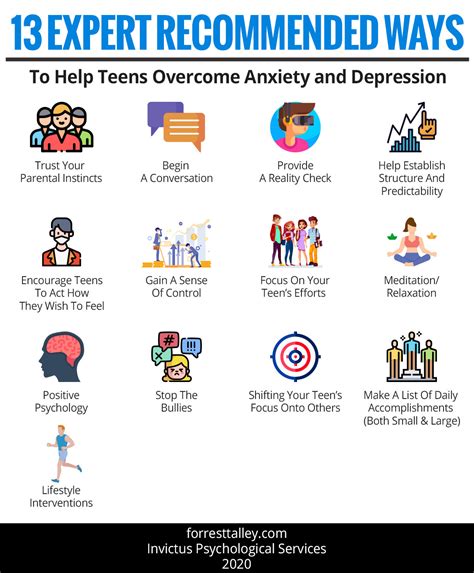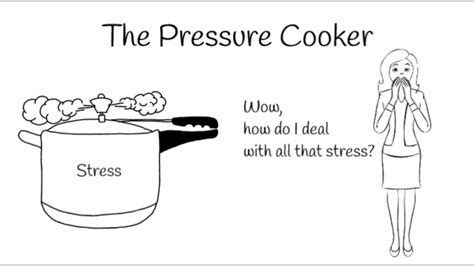
Teens battling anxiety and depression may be inadvertently affected by a common parental behavior: excessive reassurance-seeking. A new study published in the Journal of Abnormal Child Psychology reveals that parents who repeatedly attempt to soothe their children’s worries may inadvertently worsen their offspring’s anxiety and depressive symptoms over time. This counterintuitive finding suggests that while parental reassurance is intended to alleviate distress, it can paradoxically reinforce a child’s dependence on external validation and hinder the development of independent coping mechanisms.
Excessive parental reassurance, often manifested in the form of repeated questions and assurances related to potential threats or anxieties, can unintentionally amplify a child’s focus on their fears. This heightened focus, in turn, can increase the child’s perception of threat and undermine their confidence in their ability to manage challenging situations. The research underscores the importance of parents fostering a child’s sense of self-efficacy and independence in navigating their emotional landscape.
According to the study, led by researchers at the University of Sussex, “parental reassurance-seeking may unintentionally maintain or worsen child anxiety and depressive symptoms over time.” The study followed a cohort of children and their parents, tracking the correlation between parental reassurance behaviors and the children’s reported levels of anxiety and depression. The findings demonstrated a significant positive association, indicating that higher levels of parental reassurance were linked to increased anxiety and depressive symptoms in children.
The researchers emphasize that this doesn’t imply parents should withhold support or ignore their children’s concerns. Rather, they advocate for a balanced approach that combines empathy and validation with the encouragement of independent problem-solving and resilience-building. “It’s natural for parents to want to alleviate their child’s distress, but constantly providing reassurance can inadvertently send the message that the child is incapable of handling their own problems,” explains Dr. Kathryn Parkinson, lead author of the study and Senior Lecturer in Psychology at the University of Sussex.
The study highlights the complex interplay between parental behavior and child mental health. It suggests that fostering a child’s sense of agency and competence is crucial for promoting their long-term well-being. Parents can achieve this by actively listening to their children’s concerns, validating their feelings, and guiding them toward developing their own coping strategies. This approach empowers children to confront challenges with greater confidence and reduces their reliance on external reassurance.
The findings have significant implications for parenting practices and therapeutic interventions. Mental health professionals can incorporate these insights into their work with families, helping parents develop more effective strategies for supporting their children’s emotional development. This may involve teaching parents to recognize and modify excessive reassurance-seeking behaviors, as well as guiding them in fostering their child’s independence and resilience.
The Mechanism Behind Excessive Reassurance
The detrimental effects of excessive reassurance are rooted in several psychological mechanisms. First, it can prevent children from fully processing their fears and anxieties. When a parent immediately offers reassurance, the child doesn’t have the opportunity to confront and work through their emotions independently. This can lead to a cycle of avoidance, where the child relies on external validation to manage their distress, rather than developing their own internal coping strategies.
Second, excessive reassurance can inadvertently reinforce a child’s negative beliefs about themselves and the world. By constantly seeking reassurance, the child may implicitly communicate a lack of confidence in their own abilities. This can reinforce their belief that they are incapable of handling challenging situations on their own, further exacerbating their anxiety and depressive symptoms.
Third, it can increase vigilance for threats. Repeated reassurance often focuses on potential dangers or negative outcomes. This heightened focus can amplify a child’s perception of threat, making them more likely to anticipate negative events and experience anxiety. In essence, reassurance-seeking can inadvertently create a self-fulfilling prophecy, where the child’s constant anticipation of danger leads to increased anxiety and distress.
Dr. Parkinson explains, “Reassurance-seeking can become a compulsive behavior, both for the child and the parent. The child feels compelled to seek reassurance to alleviate their anxiety, and the parent feels compelled to provide it to soothe their child’s distress. This cycle can be difficult to break, but it’s essential for promoting the child’s long-term mental health.”
Alternative Strategies for Supporting Anxious Children
While excessive reassurance can be detrimental, it’s crucial to emphasize that parents should not withhold support or ignore their children’s concerns. Instead, they should adopt a balanced approach that combines empathy and validation with the encouragement of independent problem-solving.
Here are some alternative strategies for supporting anxious children:
- Active Listening: Parents should actively listen to their children’s concerns without immediately offering reassurance. This involves paying attention to what the child is saying, asking clarifying questions, and validating their feelings. For example, instead of saying “Don’t worry, everything will be fine,” a parent could say “I understand that you’re feeling anxious about the test. Tell me more about what’s making you feel that way.”
- Problem-Solving: Parents can guide their children in developing their own problem-solving strategies. This involves helping the child identify the source of their anxiety, brainstorm potential solutions, and evaluate the pros and cons of each solution. The goal is to empower the child to take control of their anxiety and develop a sense of agency.
- Cognitive Restructuring: Cognitive restructuring involves helping children identify and challenge negative or irrational thoughts. This can be done by asking the child questions such as “Is there another way to look at this situation?” or “What evidence do you have to support this thought?” The goal is to help the child develop more realistic and balanced perspectives.
- Exposure Therapy: Exposure therapy involves gradually exposing the child to the source of their anxiety in a safe and controlled environment. This can help the child learn to manage their anxiety and reduce their avoidance behaviors. It’s important to work with a mental health professional to implement exposure therapy effectively.
- Mindfulness and Relaxation Techniques: Mindfulness and relaxation techniques can help children manage their anxiety and promote a sense of calm. These techniques include deep breathing exercises, meditation, and progressive muscle relaxation. Parents can teach these techniques to their children and encourage them to practice them regularly.
- Modeling: Parents can model healthy coping strategies for their children. This involves demonstrating how to manage stress, solve problems, and handle difficult emotions in a constructive way. Children often learn by observing their parents, so it’s important for parents to be mindful of their own behavior.
- Encourage Independence: Allow your children to face age-appropriate challenges and make their own decisions, even if they might make mistakes. This helps build confidence and resilience.
- Positive Reinforcement: Praise your children for their efforts and accomplishments, rather than focusing solely on their anxieties or fears. This helps build their self-esteem and reduces their reliance on external validation.
The Role of Mental Health Professionals
Mental health professionals play a crucial role in helping families address issues related to excessive reassurance-seeking and child anxiety. They can provide guidance to parents on how to modify their behavior and foster their child’s independence. They can also provide therapy to children to help them manage their anxiety and develop coping strategies.
Cognitive Behavioral Therapy (CBT) is a common and effective treatment approach for anxiety disorders in children. CBT helps children identify and challenge negative thoughts, develop coping skills, and practice exposure therapy. Parents can also benefit from CBT, as it can help them understand their own anxiety and how it may be affecting their child.
Family therapy can also be helpful in addressing issues related to excessive reassurance-seeking. Family therapy provides a safe space for families to communicate openly and honestly about their concerns. It can also help families develop more effective communication patterns and problem-solving skills.
Study Methodology and Limitations
The study published in the Journal of Abnormal Child Psychology involved a longitudinal design, which allowed researchers to track the relationship between parental reassurance-seeking and child anxiety over time. The study included a sample of children and their parents, who were assessed at multiple time points.
Parents were asked to report on their reassurance-seeking behaviors, while children were asked to report on their levels of anxiety and depression. The researchers used statistical analyses to examine the relationship between these variables, controlling for other factors that could potentially influence child anxiety, such as parental anxiety and socioeconomic status.
While the study provides valuable insights into the relationship between parental reassurance-seeking and child anxiety, it’s important to acknowledge its limitations. First, the study relied on self-report data, which can be subject to bias. Parents may not always be accurate in reporting their reassurance-seeking behaviors, and children may not always be accurate in reporting their levels of anxiety and depression.
Second, the study was correlational in nature, which means that it cannot establish cause and effect. While the study found a positive association between parental reassurance-seeking and child anxiety, it’s possible that other factors could be contributing to this relationship. For example, it’s possible that children who are already anxious are more likely to seek reassurance from their parents.
Third, the study focused on a specific sample of children and their parents, which may limit the generalizability of the findings. Future research should examine the relationship between parental reassurance-seeking and child anxiety in more diverse samples.
Despite these limitations, the study provides important evidence that excessive parental reassurance can be detrimental to child mental health. The findings underscore the importance of parents adopting a balanced approach that combines empathy and validation with the encouragement of independent problem-solving.
Implications for Schools and Educators
The findings of this study also have implications for schools and educators. Teachers and school counselors can play a role in identifying children who may be struggling with anxiety and providing them with support. They can also educate parents about the potential risks of excessive reassurance-seeking and provide them with alternative strategies for supporting their children.
Schools can implement programs that promote resilience and coping skills in children. These programs can teach children how to manage stress, solve problems, and handle difficult emotions in a constructive way. They can also provide children with opportunities to practice these skills in a safe and supportive environment.
Teachers can also be mindful of their own reassurance-seeking behaviors. Just as parents can inadvertently reinforce anxiety by providing excessive reassurance, teachers can do the same. Teachers should strive to create a classroom environment that is supportive and encouraging, but also promotes independence and self-reliance.
Moving Forward: A Call for Balanced Parenting
The research on parental reassurance-seeking highlights the importance of balanced parenting. Parents should strive to be empathetic and supportive, but also encourage their children to develop independence and resilience. This involves validating their children’s feelings, but also guiding them in developing their own coping strategies.
It’s also important for parents to be aware of their own anxiety and how it may be affecting their children. Parents who are anxious may be more likely to provide excessive reassurance to their children, even if it’s not in their best interest. If parents are struggling with anxiety, they should seek professional help.
By adopting a balanced approach to parenting, parents can help their children develop the skills and resilience they need to thrive. This will not only improve their children’s mental health, but also strengthen their relationships and promote their overall well-being.
Future Research Directions
Further research is needed to better understand the complex relationship between parental reassurance-seeking and child mental health. Future studies should examine the role of other factors that may influence this relationship, such as parental anxiety, child temperament, and cultural context.
Researchers should also explore the effectiveness of different interventions for reducing excessive reassurance-seeking and promoting child resilience. This could involve developing and testing new parenting programs, as well as adapting existing therapies to address this specific issue.
Longitudinal studies that follow children over time are needed to better understand the long-term effects of parental reassurance-seeking. These studies could examine how parental reassurance-seeking affects child mental health, academic achievement, and social relationships.
By continuing to research this important topic, we can develop more effective strategies for supporting children’s mental health and promoting their overall well-being.
FAQ: Parental Reassurance and Teen Anxiety
Q1: What is excessive reassurance-seeking, and how does it affect teens?
A: Excessive reassurance-seeking refers to a pattern of repeatedly seeking reassurance from parents about anxieties or worries. While intended to comfort, it can inadvertently reinforce a teen’s dependence on external validation, hinder the development of independent coping mechanisms, and increase their focus on potential threats, ultimately worsening anxiety and depressive symptoms. According to Dr. Parkinson, “Reassurance-seeking can become a compulsive behavior, both for the child and the parent,” creating a cycle difficult to break.
Q2: Does this mean I should never reassure my child when they are anxious?
A: No, it doesn’t. The key is balance. The study doesn’t advocate for withholding support but suggests parents avoid excessive or constant reassurance. Instead, focus on active listening, validating their feelings, and guiding them toward developing their own problem-solving skills. Encourage them to face age-appropriate challenges and make their own decisions, even if they might make mistakes.
Q3: What are some alternative strategies I can use instead of constantly reassuring my anxious teen?
A: Instead of immediate reassurance, try active listening by paying attention to their concerns and asking clarifying questions. Guide them in problem-solving by helping them identify the source of their anxiety and brainstorm potential solutions. Introduce cognitive restructuring by challenging negative thoughts. If appropriate, consider exposure therapy, gradually exposing them to the source of their anxiety in a safe environment. Finally, teach mindfulness and relaxation techniques like deep breathing.
Q4: How do I know if I’m providing too much reassurance?
A: Signs that you might be providing too much reassurance include: your child constantly seeking your validation for even minor decisions; you repeatedly answering the same questions about their fears despite already providing answers; your child becoming more anxious when you’re not around to reassure them; and you feeling compelled to constantly soothe your child’s anxieties, even when it disrupts your own life. If you notice these patterns, it’s worth re-evaluating your approach.
Q5: Where can I find more help or resources for my anxious teen and for myself as a parent?
A: Consult with a mental health professional, such as a therapist or counselor specializing in child and adolescent anxiety. They can provide personalized guidance and support for both you and your teen. Consider Cognitive Behavioral Therapy (CBT) for your teen, and explore family therapy options. You can also research reputable organizations like the Anxiety & Depression Association of America (ADAA) or the National Institute of Mental Health (NIMH) for information and resources. Your teen’s school counselor can also provide referrals and support.









